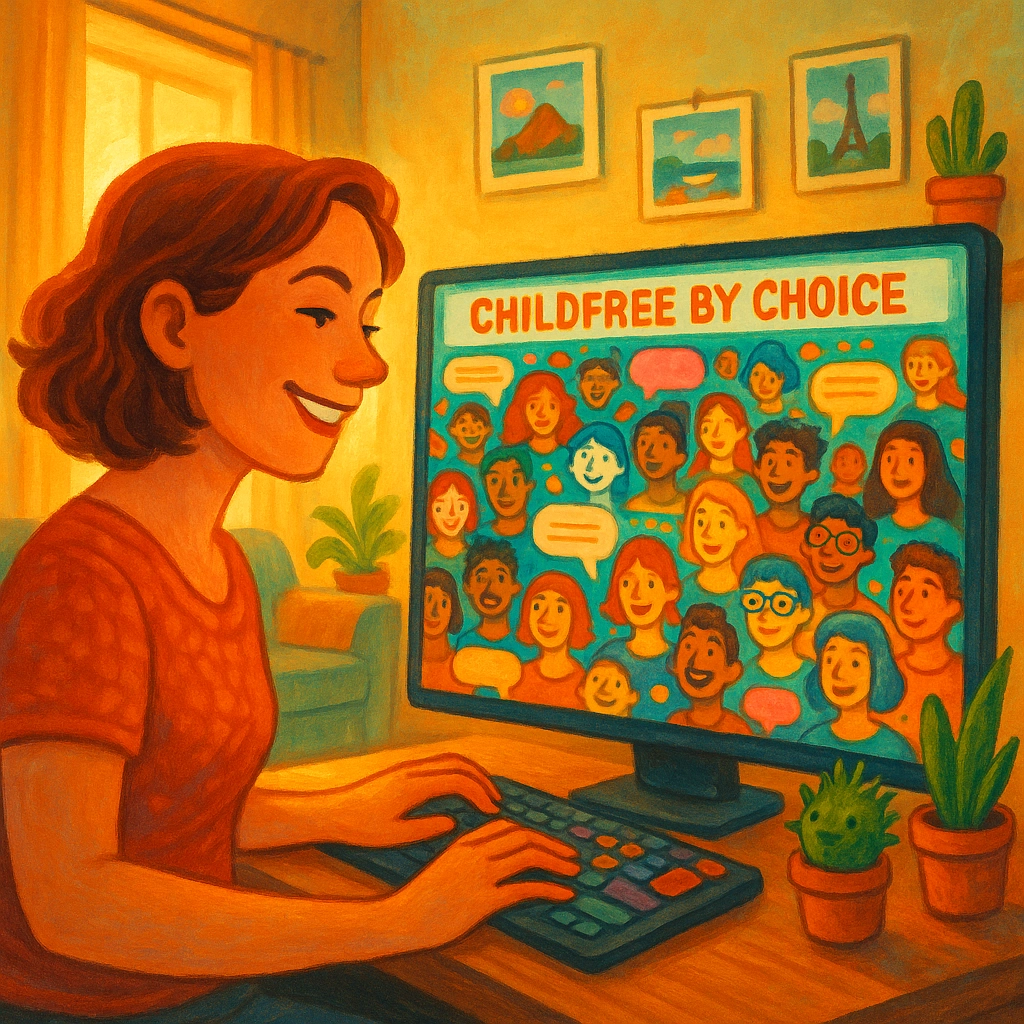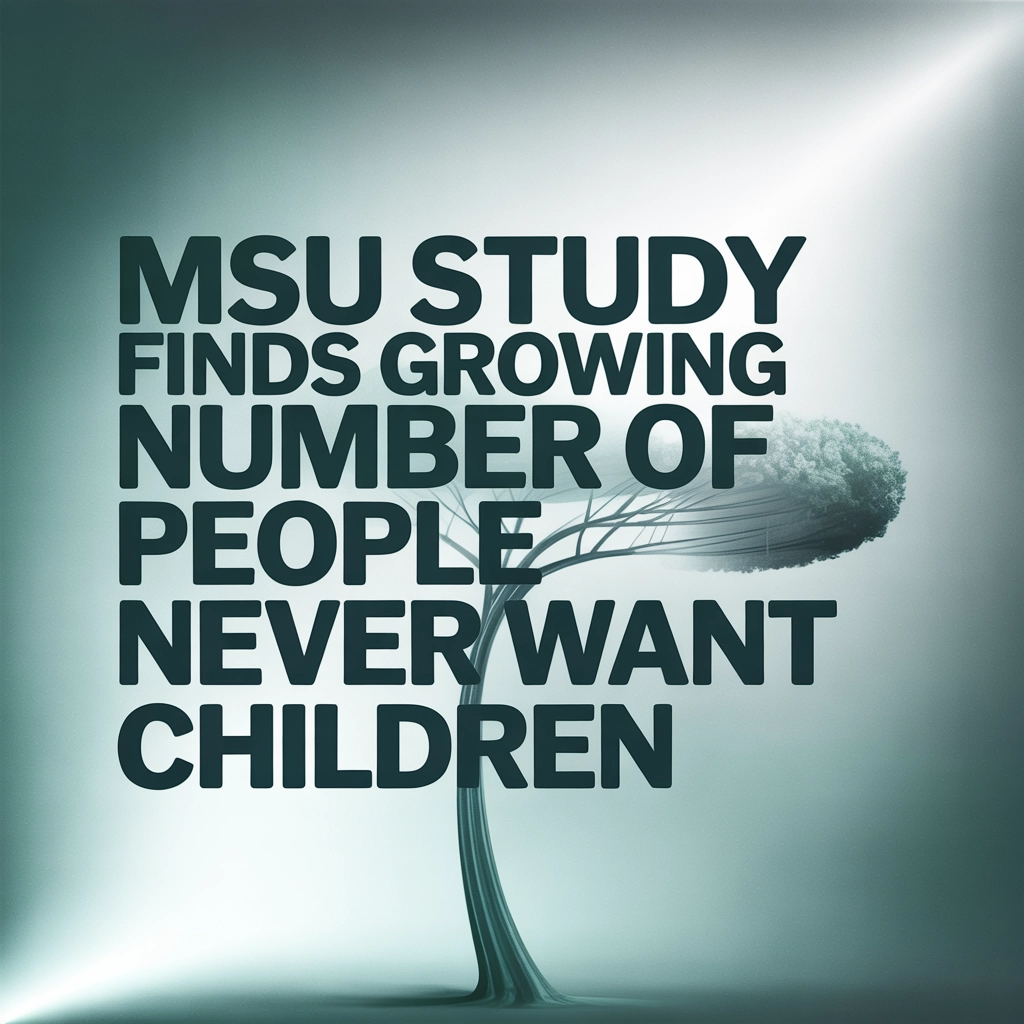Are More People Choosing a Childfree Life?
If you feel like more people around you are saying “no thanks” to the idea of having kids, you’re not imagining things. A recent study out of Michigan State University (MSU) just dropped some pretty mind-blowing numbers: the share of nonparents in America who straight-up never want to have children has doubled between 2002 and 2023. Two decades ago, 14% of nonparents said “that’s not for me.” Now, it’s close to 29%.[1][2]
That’s a huge shift in the way people are thinking about family, adulthood, and what a fulfilling life actually looks like.
What Did the Study Find?
So, what’s really going on here? The team at MSU, led by psychology professors Jennifer Watling Neal and Zachary Neal, dug into data from the National Survey of Family Growth. This deep-dive included info from roughly 80,000 adults surveyed over seven waves from 2002 all the way up to 2023.[1]
Couple of the biggest findings:
- In 2002, only 14% of nonparents reported they never wanted kids. By 2023, that number nearly hit 29%.[1][2]
- The flip side? The percent of nonparents who plan to have children dropped from 79% in 2002 to just 59% in 2023.[1][2]
- The study focused on both men and women, and included interest in both biological and adoptive children. That’s a first—most earlier research mainly focused on women and birth.[1]
What’s cool about this study is how it split nonparents into three clear categories:
- Childfree: Don’t want children—at all.
- Childless: Want kids but can’t have them.
- Not yet parents: Plan to have children in the future.[1]
This lets researchers get way more specific about what people actually want, rather than lumping everyone who doesn’t have kids into a single bucket.

Why Is This Happening?
The study doesn’t get too deep into the “why,” but there’s a lot of chatter on Reddit, in the news, and even at family dinner tables about what’s motivating this shift.
Some repeated themes:
- Financial Concerns: Childcare, housing, college—raising kids is more expensive than ever.
- Changing Priorities: Many adults put more value on flexibility, travel, career growth, and personal well-being than previous generations did.
- Climate Anxiety: Some people worry about bringing kids into a world facing climate change, social unrest, and economic upheaval.
- Breaking the Mold: Societal pressure to have kids is getting weaker. More and more, being “childfree by choice” is seen as a totally legit option, not some weird quirk.
There’s also a ton of online conversation about how hard parenting looks, and whether all those sacrifices are worth it. In the age of viral Reddit threads and TikTok confessionals, people are louder (and maybe more honest) about what parenthood really demands.
What Does This Mean for the U.S.?
There’s been a lot of talk about declining birth rates in the U.S. and around the world. This research helps clarify that the drop isn’t just about people wanting kids but struggling to have them; there’s also a big, growing group who simply don’t want children—end of story.[3]
Here’s some context:
- Earlier MSU research from 2023, focused on Michigan, found that one in five adults in the state said they never want kids.[3][5]
- Since Michigan matches the broader U.S. population in a bunch of demographic factors, that could mean 50–60 million Americans are childfree by choice.[5]
- Childfree living is a bit more common for men, white adults, and people who’ve always been single, but it cuts across all ages, income levels, and education backgrounds.[5]
That’s a massive cultural wave, with implications for everything from the economy to elder care to the housing market.

How Did the Researchers Figure This Out?
Data nerds, this is for you. The MSU team used seven waves of the National Survey of Family Growth, grabbing responses from about 80,000 adults. They carefully sorted nonparents into three groups:
- “Childfree” (never want kids)
- “Childless” (wanted kids but can’t have them)
- “Not yet parents” (plan to have kids eventually)[1]
That approach sets their study apart, since lots of previous research just lumped anyone without kids into the same general “nonparent” category, without caring about intention or circumstance.
The study even accounted for interest in adopting or other non-biological paths to parenting—so if someone said “No thanks” to both birth and adoption, they were clearly part of the growing childfree crew.
Are These Attitudes Showing Up Elsewhere?
This isn’t just a Michigan thing—or even a US-only trend. The MSU team wants to expand their research globally, since fertility rates are dropping fast in many countries. There’s a big difference between not being able to have kids, and simply not wanting to, so this kind of research could shake up some assumptions internationally.[2][3]
Other researchers are paying close attention to “voluntary childlessness” in places like Europe and East Asia, where cultural norms are changing and young adults are questioning the old playbook about marriage and family.
The Reddit Factor: What Are People Saying Online?
Any viral topic on Reddit is a treasure trove for gauging the culture shift. Just search “childfree” and you’ll find thousands of stories—a few examples:
- “I want to travel, adopt rescue animals, and live life on my own terms.”
- “It’s not that I dislike children, I just don’t feel pulled toward parenting.”
- “My partner and I get a lot of pressure from both sides of the family, but we’re sticking to our guns.”
Others vent about being judged or facing pushback, but many say it's easier than ever to find community and support. There are now entire subreddits and online forums dedicated to “childfree by choice”—and their numbers keep growing.

Society Reacts: Mixed Feelings and New Opportunities
Not everyone is cheering for this trend. While some see a win for personal freedom and honesty, others worry about:
- Shrinking workforces
- Fewer people to support retirees
- Changing demands on family-based care and support systems
On the flip side, the growth of childfree living may create more opportunities for businesses and services catering to adults without kids. Think travel, education, and housing options designed specifically for people unconstrained by school schedules and soccer practice pickups.

The Big Picture
Whether you see this as freedom or cause for concern, the MSU study makes one thing clear: The definition of “family” is changing, and those changes are reshaping what it means to be an adult in America.
This growing wave of childfree adults are making intentional choices—sometimes after a lot of soul searching, sometimes simply because they don’t feel a pull toward parenting. What will America look like as the “childfree by choice” crowd keeps expanding? For now, one thing’s for sure: it’s a conversation that isn’t slowing down anytime soon.
References
[1] Watling Neal, J., & Neal, Z. (2025). Journal of Marriage and Family.
[2] MSU Today, “Percentage of Americans who never want children has doubled” (April 2025).
[3] MSU Research News (2023).
[4] National Survey of Family Growth, U.S. data 2002–2023.
[5] Michigan MSU Childfree Study (2023).







